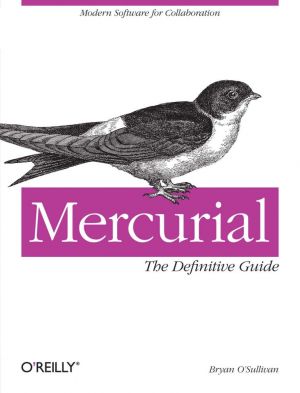Mercurial: The Definitive Guide
Modern Software for Collaboration
by Bryan O'Sullivan
DescriptionTable of ContentsDetailsHashtagsReport an issue
Mercurial permits a countless variety of development and collaboration methods, and this book offers several concrete suggestions to get you started. This guide will help you:
- Learn the basics of working with a repository, changesets, and revisions;
- Merge changes from separate repositories;
- Set up Mercurial to work with files on a daily basis, including which ones to track;
- Get examples and tools for setting up various workflow models;
- Manage a project that's making progress on multiple fronts at once;
- Find and fix mistakes by isolating problem sources;
- Use hooks to perform actions automatically in response to repository events;
- Customize the output of Mercurial. 





Book Description
This instructive book takes you step by step through ways to track, merge, and manage both open source and commercial software projects with Mercurial, using Windows, Mac OS X, Linux, Solaris, and other systems. Mercurial is the easiest system to learn when it comes to distributed revision control. And it's a very flexible tool that's ideal whether you're a lone programmer working on a small project, or part of a huge team dealing with thousands of files.Mercurial permits a countless variety of development and collaboration methods, and this book offers several concrete suggestions to get you started. This guide will help you:
- Learn the basics of working with a repository, changesets, and revisions;
- Merge changes from separate repositories;
- Set up Mercurial to work with files on a daily basis, including which ones to track;
- Get examples and tools for setting up various workflow models;
- Manage a project that's making progress on multiple fronts at once;
- Find and fix mistakes by isolating problem sources;
- Use hooks to perform actions automatically in response to repository events;
- Customize the output of Mercurial.
This open book is licensed under a Open Publication License (OPL). You can download Mercurial: The Definitive Guide ebook for free in PDF format (2.7 MB).
Table of Contents
Chapter 1
A Brief History of Revision Control
Chapter 2
A Tour of Mercurial: The Basics
Chapter 3
A Tour of Mercurial: Merging Work
Chapter 4
Behind the Scenes
Chapter 5
Mercurial in Daily Use
Chapter 6
Collaborating with Other People
Chapter 7
Filenames and Pattern Matching
Chapter 8
Managing Releases and Branchy Development
Chapter 9
Finding and Fixing Mistakes
Chapter 10
Handling Repository Events with Hooks
Chapter 11
Customizing the Output of Mercurial
Chapter 12
Managing Changes with Mercurial Queues
Chapter 13
Advanced Uses of Mercurial Queues
Chapter 14
Adding Functionality with Extensions
Appendix A
Migrating to Mercurial
Appendix B
Mercurial Queues Reference
Appendix C
Installing Mercurial from Source
Appendix D
Open Publication License
Book Details
Title
Mercurial: The Definitive Guide
Subject
Computer Science
Publisher
O'Reilly Media
Published
2009
Pages
282
Edition
1
Language
English
ISBN13 Digital
9780596800673
ISBN10 Digital
0596800673
PDF Size
2.7 MB
License
Open Publication License
Related Books
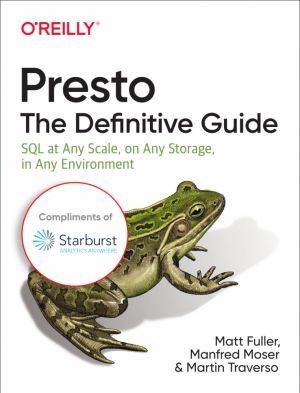
Perform fast interactive analytics against different data sources using the Presto high-performance, distributed SQL query engine. With this practical guide, you'll learn how to conduct analytics on data where it lives, whether it's Hive, Cassandra, a relational database, or a proprietary data store. Analysts, software engineers, and prod...
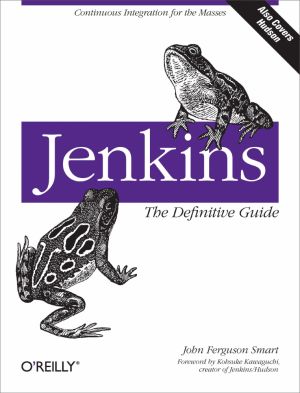
Streamline software development with Jenkins, the popular Java-based open source tool that has revolutionized the way teams think about Continuous Integration (CI). This complete guide shows you how to automate your build, integration, release, and deployment processes with Jenkins - and demonstrates how CI can save you time, money, and many headac...
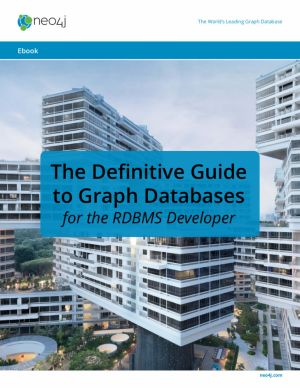
For the right use case, relational databases are powerful tools.
But today's users are asking for more than an RDBMS can handle. More features, more data, more speed and - most importantly - more connections.
This ebook introduces you - the RDBMS developer - to a new technology that leverages data connections like never before: the graph...
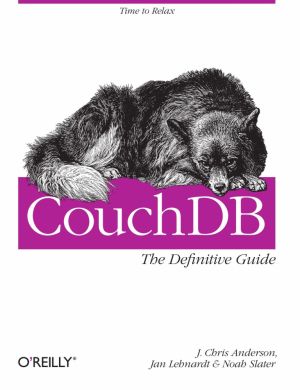
Three of CouchDB's creators show you how to use this document-oriented database as a standalone application framework or with high-volume, distributed applications. With its simple model for storing, processing, and accessing data, CouchDB is ideal for web applications that handle huge amounts of loosely structured data. That alone would stret...
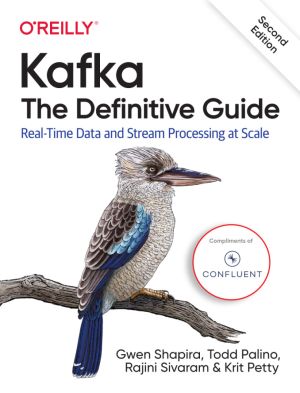
Every enterprise application creates data, whether it consists of log messages, metrics, user activity, or outgoing messages. Moving all this data is just as important as the data itself. With this updated edition, application architects, developers, and production engineers new to the Kafka streaming platform will learn how to handle data in motio...

Based on coursework developed at Peabody Conservatory, this book breaks down the process of developing an artist mission statement, generating new ideas for creative projects, and creating an engaging project description. It also covers methods for artists to identify their audience, generate a comprehensive project budget, collect compelling work ...

